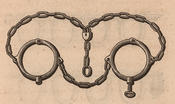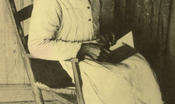text
Visual
Chains

These images show how enslavers used chains as a way to take freedom away from enslaved people. This text contains sensitive images that may not be suitable for all students.
January 28, 2020

